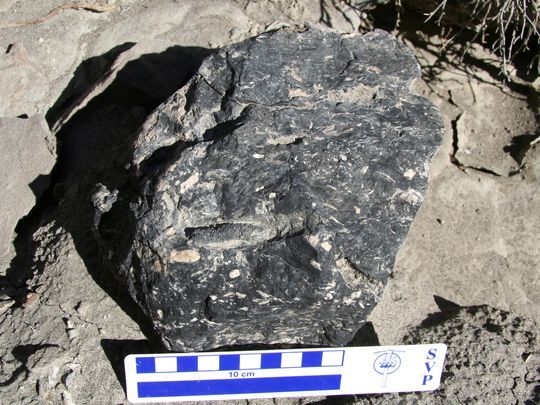Even dinosaurs had cheat days when it came to their diets, a new report suggests.
Hadrosaurs, also called duckbills, were thought to be strictly vegetarian when it came to their fare. But an analysis of their fossilized poop showed that the animals ate crab-like crustaceans, and even rotten wood, USA Today reports. Pregnant females about to lay their eggs may have even looked for decomposing logs that contained small creatures, much like how expectant human mothers have unusual cravings.
Karen Chin, a paleontologist at the University of Colorado Boulder and co-author on the study, said that in studying the duckbills’ teeth, scientists “confidently assessed that these were plant-eaters.” Now, she said, “these guys were feeding on crustaceans,” as it turns out, something Chin “had never imagined.”
The 75-million-year-old duckbill poop was found in Utah’s Grand Staircase-Escalante National Monument.
Dinosaurs once populated the area, leaving plenty of hard evidence. There’s even a particular spot filled with waste from multiple species, serving as some sort of prehistoric toilet.
Ian Miller, a paleontologist at the Denver Museum of Nature & Science, was taking an ocular of the area five years ago when he saw what he described as something “super-unusual…a big blob of black stuff coming out of grey rock.” Believing it might coprolite – petrified feces – he got in touch with Chin.
Chin examined 15 deposits in the area that were scattered across over a dozen miles. The excrement contained decayed wood, to their surprise. In addition, 10 of the 15 samples contained dark bits that turned out to be pieces of a crustacean shell. Their best guess is a crayfish or crab, according to co-author Rodney Feldmann of Kent State University.
There is no direct evidence to suggest that the poop came from duckbills, but their fossils are the most common in that specific area. Also, the dinosaurs had hundreds of teeth that were capable of grinding tough plants, unlike other species in that place at the time.
The study was published in Scientific Reports.
























